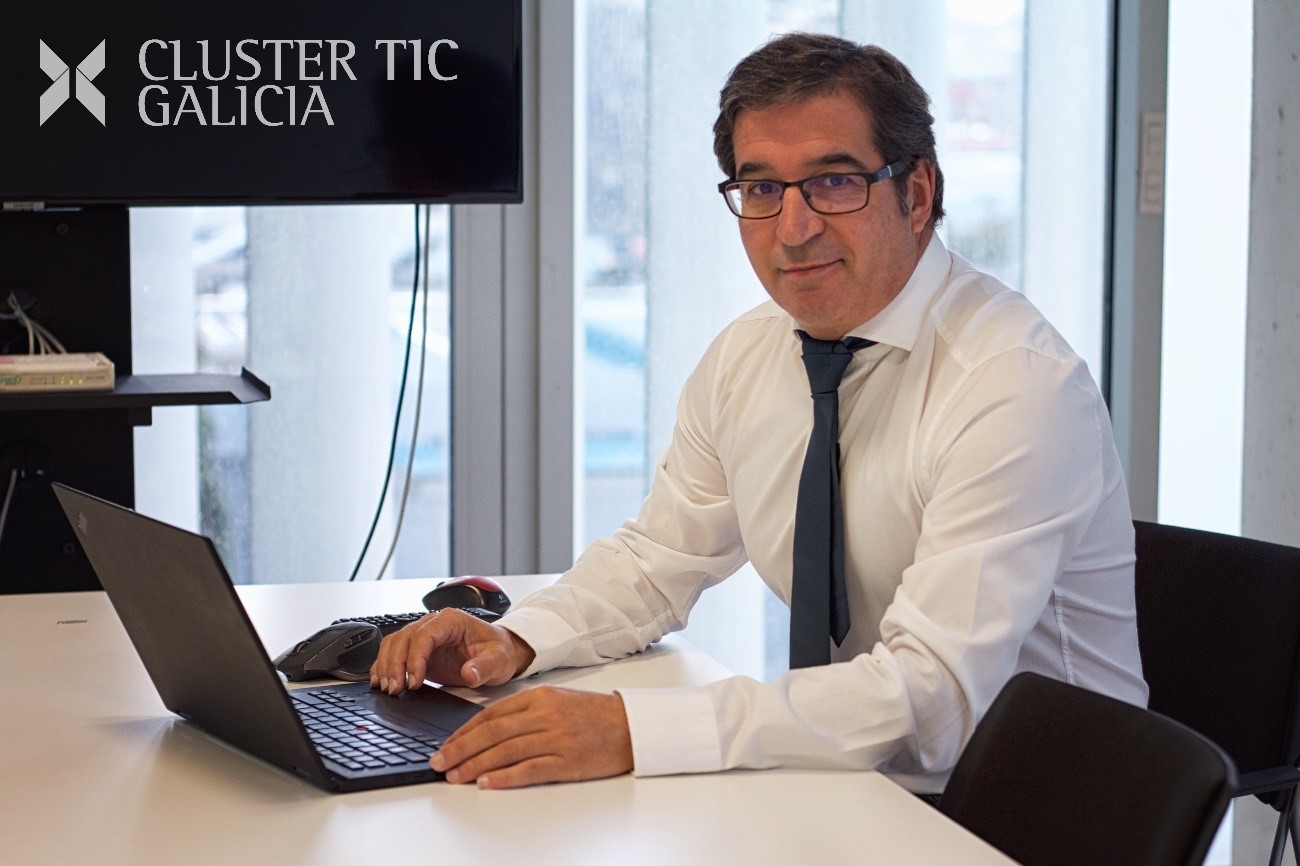
Latest information

Interview with Antonio Rodríguez del Corral, president of the Galicia ICT Cluster
Convinced that the future ICT City in A Coruña will encourage investment in Galicia and strengthen Galician businesses while also making the sector more visible abroad, the president of the Galicia ICT Cluster , Antonio Rodríguez del Corral, lays out the necessity of being conscious of the fact that “within 20 years, the value chain of an industry will be completely defined in digital terms”. Because of this, he is sure that the new Galicia Business Office will help the sector attract qualified professionals.
The Galicia ICT Cluster Galicia unites businesses, business associations, schools, professional associations and other agents of the macro-sector of the Galician Information Communication Technology sector. What is it primary objective?
The primary objective of the ICT Cluster is to support its partners’ strategy, to help bring in new business and create new environments in collaboration with other economic sectors, intermediary bodies, and public administration. A cluster is not a business association, or an employer, but a work environment located among heterogenous elements linked to a value chain. A difficulty we perhaps have is that the value chain of ICT is currently one of the cornerstones of all economic sectors, however this is also our greatest strength.
The Galicia Business Office was created as a result of the Law of Administrative Simplification and in support of economic reactivation, to allow the growth and establishment of businesses to attract and retain talent. Do you consider that this resource works to reinforce the Cluster’s mission with regard to the increase in competitivity and innovation in the sector?
Human resources are important to the ICT sector at the moment. We are at an historic juncture in terms of employment in the sector, but there seems to be no end to demand. Any method of facilitating the creation and establishment of businesses, to take on more staff and have a more dynamic sector will always be positive. Right now, it is difficult to bring in qualified professionals from other countries, and there are many administrative barriers which do not make sense in the 21st century, so we hope the Galicia Business Office can help us.
Regarding synergies between the business network and public administration, as well as the trust of businesspeople and investors necessary to grow in Galicia, what role does the ICT City play?
The ICT City is a mixed scientific-business campus that gives greater protection and visibility to other sectors and draws attention to the Galician ICT sector abroad. It has already seen very positive change in perception of the value placed on the ICT sector by the Regional Government of Galicia, and it recognises the business network is already successfully attracting businesses to Galicia. The ICT City will serve to enable investment in Galicia and to strengthen Galician ICT companies. What’s more, it will continually showcase digital solutions for the economic sector as well as for university innovation and technological centres . Another of its goals is to have a business accelerator for high tech projects and it is already working to create centres of expertise for artificial intelligence technologies for diverse sectors.
Digitalisation in general and ICT in particular have played an important role in the pandemic. And now? At what point of the digital transformation are we now?
The process of digital transformation has barely begun, so we are a long way from peak activity. In 2005 a business could still select a marketing or business director that was not a digital native. Today this is unthinkable, key suppliers are digital and if a business doesn’t have a digital strategy it is lost in today’s world. The pandemic has clarified the difference between having a digital strategy and not having one; or having one, but executing it poorly. This necessity for the digitalisation of all processes combined with intensive roboticization and the digital access to the market is what accelerates competitivity, not only within a sector but even pitting some sectors against others. Today, we are witnessing software take over cars and energy management, and within 20 years an industry’s value chain will be completely defined in digital terms. This is why we can say that we are very much at the beginning of the road, and that this is a marathon, not a sprint.